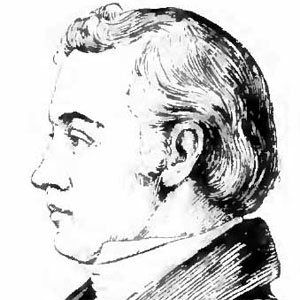In his famous I Have A Dream speech, Martin Luther King Jr. emphasised his mission as one connected to the hope of living in a world where he is judged by the “content of [his] character” and not the colour of his skin.
The philosophy of that speech, as well as King’s affinity for welcoming whites who believed and fought for the same cause as he did, laid the groundwork for modern American conception of concerted multiracial efforts on civil rights.
King inspired white people into the conviction that it is not enough to be anti-racism. One has to be actively pro-equality.
His is a watershed moment in US history, however, there were a few white men and women who campaigned for the humanity and dignity of black people long before King but not as he would have wanted.

Some of these individuals lost their livelihoods and their lives fighting for an unpopular moral position. One of them is Elijah Parish Lovejoy.
Lovejoy was a 19th century American Presbyterian minister from Maine. Born in 1802 as the first of nine children, Lovejoy was educated at the Academy of Monmouth where he studied Latin and mathematics.
He then proceeded to Waterville College, graduating as the valedictorian. For a while after college, the young man was a teacher. But finding no joy nor fulfillment in teaching, he decided to leave town.
He first moved to Boston in 1827 and then to Illinois by way of New York City where he first got acquainted with journalism by working for the Saturday Evening Gazette.
A young man with no money and familial connections for upward mobility, Lovejoy found himself stranded and practically hopeless in Illinois. But he learned of opportunities in St. Louis in Missouri.
Missouri in the early 1800s was a rather peculiar state. It was a pro-slavery jurisdiction surrounded free states. As such, St. Louis became a point of tension for slavemasters and abolitionists.
There were also issues of free blacks who went through the city but were captured and sold. St. Louis Circuit records show more than 200 claims filed in that period by black men insisting they were not slaves.
If there was any place Lovejoy would have been best served the intricacies of 19th-century American racial politics, it was St. Louis. In his own state of Maine, slavery had been outlawed in 1820.
But in Missouri, he saw both free and enslaved blacks working. He would have learned how inimical slavery is to the realisation of the human potential and juxtaposed it with how free black people excelled.
Lovejoy took up a job at a newspaper, the St. Louis Times. In those times, it was a progressive voice having supported Henry Clay, a man who owned slaves yet thought slavery was a “grievous wrong to the slave“.
The Times was also famed for having a number of writers who supported freedom for black people only so that they are sent back to Africa. All of these factors educated Lovejoy on the nuances of race at that time.
Indeed, even Lovejoy himself occasionally employed the services of slaves although he never actually own one. He would use them for either domestic or professional tasks like helping with printing newspapers.
In a memoir of one of these slaves, William Wells Brown, Lovejoy is described as “a very good man, and decidedly the best master that I had ever had. I am chiefly indebted to him, and to my employment in the printing office, for what little learning I obtained while in slavery.”
After working a while for the Times, Lovejoy enrolled at the Princeton Theological Seminary, New Jersey in 1832. He graduated and was anointed minister of the Presbyterian church.
Lovejoy’s mind on what he felt about slavery was formed by the time he left Princeton: he did not like and wanted black people to be treated as free humans.
So when a group of moneyed came calling for him to work at the St. Louis Observer, another newspaper, Lovejoy embraced the opportunity. His editorials were moral and philosophical arguments about why slavery was wrong.
Due to the ferocity of his writings, Lovejoy made headlines beyond Missouri. And also made powerful enemies including T. H. Benton, a future senator who argued that freedom of speech did not include the right to call for the equality of the races.
Lovejoy, perhaps, did not mind making powerful enemies. His friends pleaded with him to tone down his polemics against slavery but he would not listen.
Starting from 1835, local mobs started attacking the Observer office. But Lovejoy remained relentless and indeed, had to move his newspaper to Illinois to continue his anti-slavery editorials.
A quote by which Lovejoy is most noted is: “Slavery must cease to exist. On this, there can be no doubt.”
At this point, he was gaining fame through the Union.
However, on November 7, 1837, two days before his 35th birthday, a mob attacked one of his printing presses to torch it down. Gunfire was exchanged and Lovejoy was shot to death.
Abolitionists in America immediately had a martyr: Abraham Lincoln would mention him in a speech; Owen Lovejoy, his brother, became an abolitionist and across the country, anti-slavery groups increased sharply.
131 years before MLK would be shot for similar reasons of offending racists, Elijah Parish Lovejoy fell.
He could have embraced the comfort of being a white man in the United States. But instead, he chose to cause good trouble, as civil rights icon John Lewis would say.










